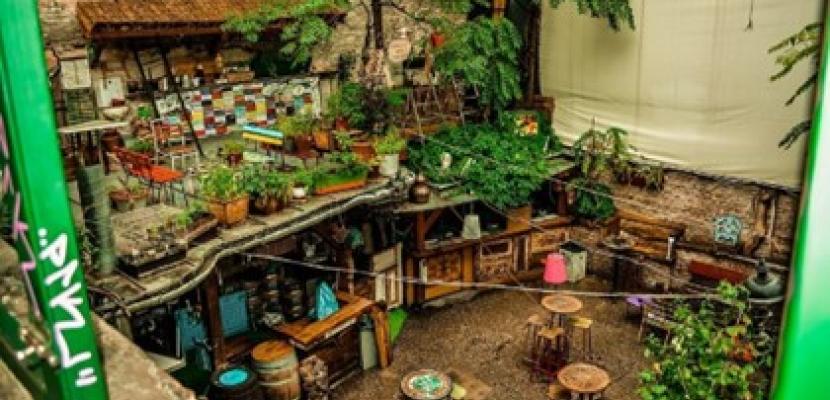
Szimpla Kert ruin bar

About this good practice
Szimpla Kert's inception was a creative response to the underutilization and deterioration of Budapest's historic Jewish Quarter. This area, rich in heritage yet marred by neglect, needed a transformative approach to urban renewal that considered the unique legal, economic, and sociopolitical context of Hungary. By converting an abandoned factory into a vibrant hub of culture and social interaction, Szimpla Kert pioneered the ruin bar concept, setting a precedent for revitalizing disused urban spaces.
This innovative practice not only addresses the immediate issues of urban decay and the loss of community spaces but also tackles broader challenges such as economic stagnation and the underappreciation of cultural heritage.
Stakeholders, including the local government, community members, artists, and entrepreneurs, play crucial roles in its ongoing success, contributing to a dynamic ecosystem that supports both cultural enrichment and economic vitality.
The implementation of Szimpla Kert is a testament to the power of community-driven solutions to urban challenges. It leverages the collective creativity and resources of its stakeholders to offer a diverse array of cultural activities—from live music and art exhibitions to markets that showcase local produce and crafts.
Though specific data on the costs and benefits were not provided, the visible revitalization of the area and the increased foot traffic suggest significant positive returns on investment.
Resources needed
Rent for the building in District VII, initial costs, then ongoing growth costs, plus ongoing operational costs for creative programming and management. With 1,400 square metres, a million visitors a year and more than 200 cultural programmes, it requires a large human resource.
Evidence of success
The Szimpla Garden has a significant impact on cultural tourism in Budapest, attracting thousands of visitors. This success highlights the project's role in urban regeneration. Thanks to its popularity and attractiveness, the ruin bar has attracted many cultural visitors and programmes to the site, making it a central cultural venue. In addition to the Szimpla Kert, there is another ruin bar in Budapest, the Szimpla.
Potential for learning or transfer
The concept of the rumpus bar in the Szimpla Kert is a convincing model of urban regeneration with significant potential for learning and transfer to other regions. An innovative approach to the reuse of abandoned spaces has revitalised neighbourhoods by promoting community engagement and economic development. The scalability and replicability of the concept is underlined by its adaptability to different urban contexts, offering a clear methodology for other stakeholders. Besides Szimpla Kert, there is another rum bar in Budapest, Szimpla. In addition, since the launch of the initiative, nearly 100 such venues have opened in the country, with cultural programmes. The Szimpla Kert was the inspiration for the initiative and the other rum bars have been modelled on it. In addition to Budapest, there are similar ones in Debrecen, Pécs, Miskolc, Győr, Nyíregyháza, Esztergom, Tata, etc. Of course, municipal support can be applied for, but basically these are all individual initiatives.
Further information
Website
Good practice owner
You can contact the good practice owner below for more detailed information.
Central Transdanubian Regional Innovation Agency (KDRIÜ)
